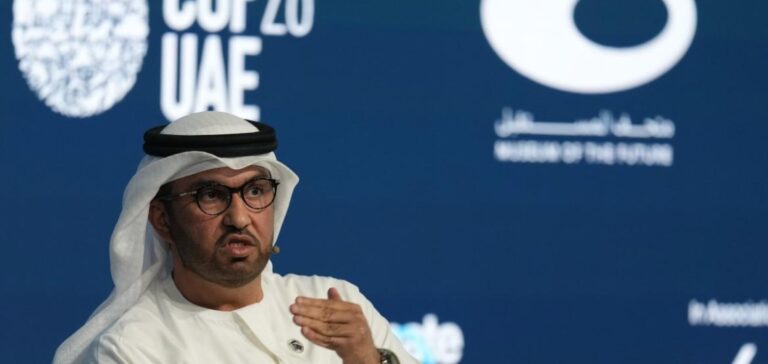On the eve of COP28, Sultan Al Jaber, the Emirati chairman of the conference, finds himself at the heart of a controversy. Documents revealed by the Centre for Climate Reporting and the BBC accuse Al Jaber of using his position to promote United Arab Emirates (UAE) energy projects in several countries. These documents, leaked by a whistleblower, suggest Sultan Al Jaber’s direct involvement in promoting the companies he heads, including the national oil company Adnoc and the renewable energy company Masdar.
The Defense of Sultan Al Jaber
Faced with these accusations, Sultan Al Jaber categorically refutes them, calling them
“false, incorrect, and inaccurate”.
At an event in Dubai, he declared that neither he nor the UAE needed the COP or its presidency to establish trade agreements. These statements come at a time when the credibility of the COP28 presidency is being called into question.
International Revelations and Reactions
The documents reveal briefings prepared for Al Jaber prior to meetings with foreign government officials, highlighting business interests in nearly 30 countries. They mention specific projects such as Adnoc’s supply of diesel and kerosene to Kenya, or a petrochemical project in Brazil. These revelations provoked strong reactions. Christiana Figueres, former head of UN Climate, compared the affair to Volkswagen’s diesel scandal in 2015, while US senators, including Sheldon Whitehouse, expressed concerns about the integrity of the conference.
Implications for COP28 and Calls for Resignation
This situation has tarnished the image that Sultan Al Jaber was trying to build, that of a mediator between the Gulf and countries calling for a rapid phase-out of fossil fuels. American climatologist Michael Mann even called for his immediate resignation or a boycott of COP28. These developments raise questions about the influence of fossil fuel lobbies and the integrity of the climate conference.
The Sultan Al Jaber affair at COP28 raises crucial questions about the neutrality and integrity of international climate negotiations.






















